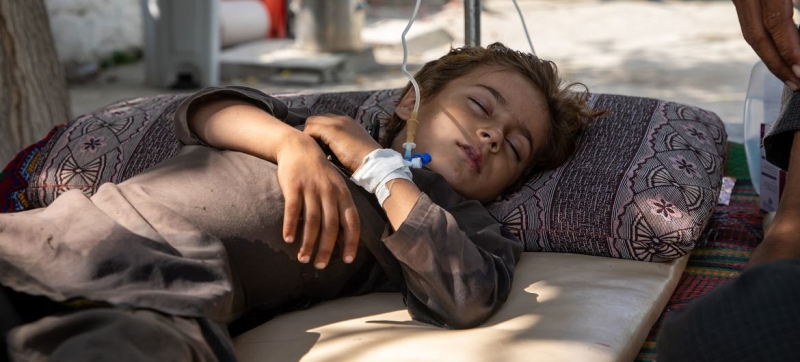
The communications blackout in Afghanistan has disrupted humanitarian operations and medical care. In the photo: a boy injured in the earthquake. Afghanistan: communications blackout endangers lives and health Human rights
A 48-hour shutdown of the internet and telecommunications in Afghanistan last month added to the hardships already faced by the country’s population. This is stated in a report presented today by the Office of the UN High Commissioner for Human Rights and the UN Assistance Mission in Afghanistan (UNAMA).
The report is based on more than 100 interviews conducted following a nationwide communications blackout implemented by de facto authorities from September 29 to October 1, 2025.
Human rights implications
How The document notes that without telecommunications, the healthcare system, the banking sector and small businesses, as well as basic services, cannot function.
The report’s authors described a number of identified human rights violations related to communication restrictions. These include delays in medical care or lack of access to health care and emergency services, disruption of humanitarian operations, reinforcement of existing discriminatory restrictions against women and girls, interference in the daily and family lives of citizens, and disruption of local businesses and the banking system.
The Status of Women and girls
Women and girls in Afghanistan already face some of the harshest restrictions in the world. Evidence showed that their lives became even more difficult during the communications blackout.
Thus, some women could not contact their male relatives – mahrams. In Afghanistan, women are prohibited from traveling more than 78 kilometers or traveling in a car without being accompanied by a mahram. In some areas, such men must accompany women even on their way to work, shopping or to the doctor. One resident of Afghanistan said: “I couldn’t get through to my father so that he would come for me. I had to walk home. I was very scared, but fortunately I got home within an hour.”
For many Afghan women, online learning remains the only option to get an education, as the de facto authorities have banned education for women and girls after the sixth grade. One student said: “It was a terrible day and night. We were desperate and afraid that we would be thrown back into the Stone Age. It was unbearable.”
Health Abuses
Health workers described deaths that could have been prevented with functioning communications. In one hospital in Laghman province, a pregnant woman with severe bleeding needed urgent transport to the regional hospital, but the local ambulance was broken down and no other service could be reached. The child died, the mother survived, but she has complications. A nurse said, “I’m trained to save lives, but without communications I felt completely helpless.”
Earthquake Relief
Humanitarian organizations reported that the communications blackout had disrupted their work, resulting in vital assistance to those in need has been delayed. During the communications shutdown, humanitarian missions provided support to victims of the August 31 earthquake in the provinces of Nangarhar, Laghman and Kunar, and also carried out operations in connection with the mass return of Afghans from Pakistan.
The UN emphasizes that the communications blackout and other communications restrictions violate the rights to freedom of expression and access to information, which are contrary to Afghanistan’s human rights obligations. To date, the de facto authorities have not publicly explained the reasons for introducing these restrictions.
As the report emphasizes, the authorities are obliged to respect international human rights standards, and any restrictions must be carried out within the framework of the law and in accordance with the principles of necessity and proportionality to the stated objectives.
